Table of Contents

THE ZELENSKY EFFECT
 NEW PERSPECTIVES ON EASTERN EUROPE
NEW PERSPECTIVES ON EASTERN EUROPE
AND EURASIA
The states of Eastern Europe and Eurasia are once again at the centre of global attention, particularly following Russias 2022 full-scale invasion of Ukraine. But media coverage can only do so much in providing the necessary context to make sense of fast-moving developments. The books in this series provide original, engaging and timely perspectives on Eastern Europe and Eurasia for a general readership. Written by experts onand fromthese states, the books in the series cover an eclectic range of cutting-edge topics relating to politics, history, culture, economics and society. The series is originated by Hurst, with titles co-published or distributed in North America by Oxford University Press, New York.
Series editor: Dr Ben NobleAssociate Professor of Russian Politics at University College London and Associate Fellow at Chatham House
OLGA ONUCH
HENRY E. HALE
The Zelensky Effect


Oxford University Press is a department of the
University of Oxford. It furthers the Universitys objective
of excellence in research, scholarship, and education
by publishing worldwide.
Oxford New York
Auckland Cape Town Dar es Salaam Hong Kong Karachi
Kuala Lumpur Madrid Melbourne Mexico City Nairobi
New Delhi Shanghai Taipei Toronto
With offices in
Argentina Austria Brazil Chile Czech Republic France Greece
Guatemala Hungary Italy Japan Poland Portugal Singapore
South Korea Switzerland Thailand Turkey Ukraine Vietnam
Oxford is a registered trade mark of Oxford University Press
in the UK and certain other countries.
Published in the United States of America by
Oxford University Press
198 Madison Avenue, New York, NY 10016
Copyright Olga Onuch and Henry E. Hale 2023
All rights reserved. No part of this publication may be reproduced,
stored in a retrieval system, or transmitted, in any form or by any means,
without the prior permission in writing of Oxford University Press,
or as expressly permitted by law, by license, or under terms agreed with
the appropriate reproduction rights organization. Inquiries concerning
reproduction outside the scope of the above should be sent to the
Rights Department, Oxford University Press, at the address above.
You must not circulate this work in any other form
and you must impose this same condition on any acquirer.
Library of Congress Cataloging-in-Publication Data is available
Olga Onuch and Henry E. Hale.
The Zelensky Effect.
ISBN: 9780197684511
CONTENTS
ACKNOWLEDGMENTS
It has long been a clich to say that writing a book requires the backing of a whole village, and by now it is even clichd to observe that this particular clich happens to be true. Far be it from us to let the village go un-thanked just because it has become clichd. In our case, the village includes not only individuals but a robust set of scholarly networks, institutions, and, most importantly, a country.
The country is, of course, Ukraine. We thank all ordinary Ukrainians for inspiring our research for decades. Your strong sense of civic duty and identity, as well as your constant willingness to mobilize en masse when your lives and futures are at stake, lie at the heart of the nation that gave birth to and nurtured the man at the center of our story, Volodymyr Zelensky. But while our book bears his name, it is more fundamentally about his country, about the people who made the man and co-produced the leadership that he has shown in the dark days since February 2022, when Russia launched its full-scale invasion. This means all Ukrainians. You have fought for Ukrainian democracy and sovereignty for decades and you continue that fight today. And to those Ukrainians currently living under occupation, your resilience and sense of civic duty are awe-inspiringKherson is Ukraine, Donetsk is Ukraine, Luhansk is Ukraine, Zaporizhzhya is Ukraine, and Crimea is Ukraine!
Among the individuals in our village, we would first single out our families: Miles, Mirka, Yuri, Isabelle, and, yes, even Yara, Blanche, and Stella. All put up with burdens neither of us had intended to impose on them during the writing of this book. Without their unconditional love and understanding, as well as the insights they have shared as we discussed our project in progress with them, there would be no book. Many dear friends have also listened to us ramble on about our research, and the fascinating (to us, at least!) conversations that followed have often given us pause and helped us improve our analysis. We mention in particular Olesya, Taras, Irka, Marta, Yuliya, and Sasha. With our own friends and, in Olgas case, family in harms way, we also give special thanks to others who provided support through some of the hardest periods of 2022, including Carol, Sorana, Laurence, Jen, Katie, Anna, Maria, Miriam, Evrim, Jane, Orest, Vitalik, and Zsofithey all know how they helped and we thank them.
On the professional side, we would begin by thanking Irina, Katya, and Anna for their outstanding research assistance. To our dear colleagues who discussed the book with us, read related papers, provided feedback on associated presentations, checked our analyses, provided us useful leads or other information, and/or have been understanding when we have been distracted from other joint projects, we are extremely grateful. While not all may agree with everything we have argued, we would name here Volodymyr Kulyk, Gwendolyn Sasse, David Doyle, Mark Beissinger, Graeme Robertson, Grigore Pop-Eleches, Bryn Rosenfeld, Jane Green, Javier Prez-Sandoval, Tymofiy Brik, Irina Soboleva, Tanya Lokot, Emily Channell-Justice, Tamara Martsenyuk, Erik Wibbels, Ernesto Calvo, Joshua Tucker, Lucan Way, Samuel Green, Tomila Lankina, Oxana Shevel, Maria Popova, Emma Mateo, Nadiya Kravets, and Timothy Colton. We also express our gratitude to the numerous insiders and other interlocutors who have shared their insights about Ukraine with us this year and long beforewithout them we would not know much that we do today.
Certain scholarly networks and projects have also been invaluable forums for the development of our ideas. Immensely important has been the MOBILISE project family, including country principal investigators and co-investigators David Doyle, Evelyn Ersanilli, Gwendolyn Sasse, Sorana Toma, and Jacquelien Van Stekelenburg, as well as postdoctoral researchers Javier Prez-Sandoval, Anna Glew, Felipe Gonzalez-Santos, Sbastien Michiels, and Piotr Goldstein, and PhD students and PhD research assistants Astrid Bodini, Kostyantyn Fedorenko, Emma Mateo, Ana Martinez, Alex Josid, Alina Nychyk, Cressida Arkwright, and Kateryna Marina. Exchanges through PONARS Eurasia have also been especially important, with special thanks going to all who participated in its March 2022 round-the-clock Ukrainathon, which featured an early presentation of our Zelensky Effect idea and generated crucially important feedback. Special mention also goes out to our co-investigators in two projects from which we draw data, the Identities and Borders in Flux (IBIF) Ukraine project (Kulyk and Sasse) and the Ukrainian Crisis Elections Panel Survey (UCEPS) project (Colton and Kravets).
Funding that contributed directly to this book has come from many sources, including: the Open Research Area, which funded the MOBILISE project (www.mobiliseproject.com) with Grant Ref ESRC ES/S015213/1; the British Academy, which funded the IBiF Ukraine Project with grant IC4/100280; the U.S. National Science Foundation, which funded the UCEPS project under grant SES-1445194; the George Washington University, through PONARS Eurasia and the Petrach Program on Ukraine at the Elliott School of International Affairs Institute for European, Russian, and Eurasian Studies (IERES, directed by Marlene Laruelle); the Harvard Ukrainian Research Institute (HURI); ZOiS; the Ukraine Research Fund; and the OUP John Fell Fund.

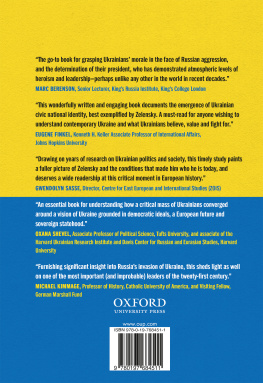
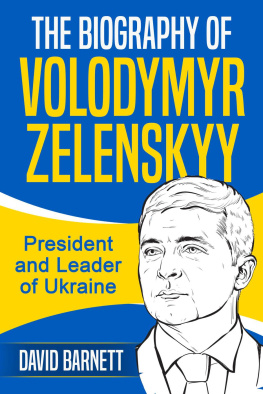
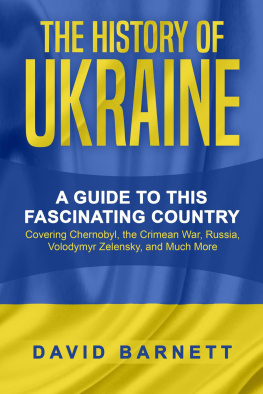
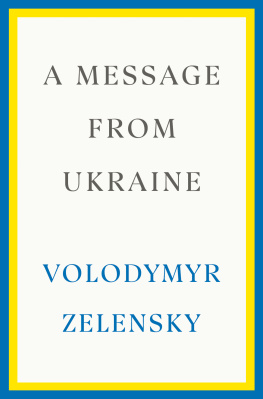
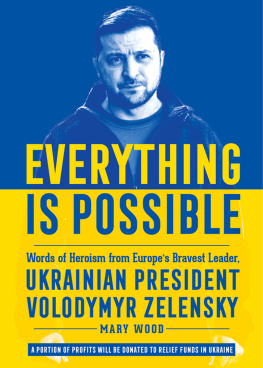
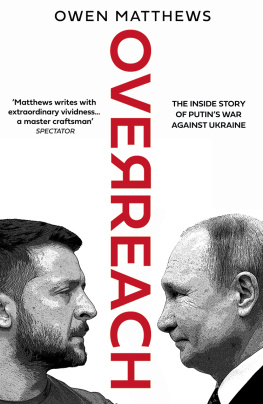


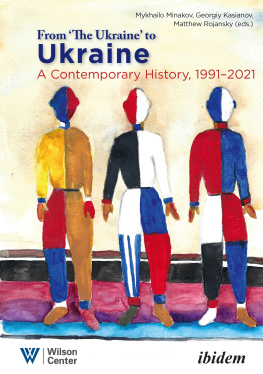
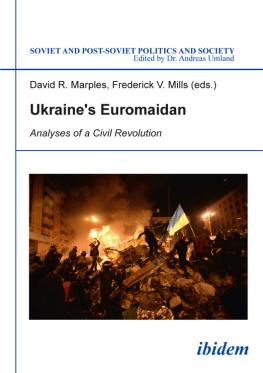
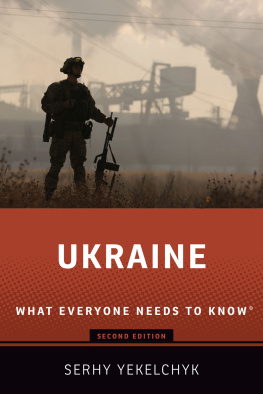
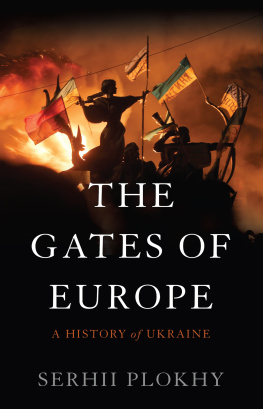

 NEW PERSPECTIVES ON EASTERN EUROPE
NEW PERSPECTIVES ON EASTERN EUROPE